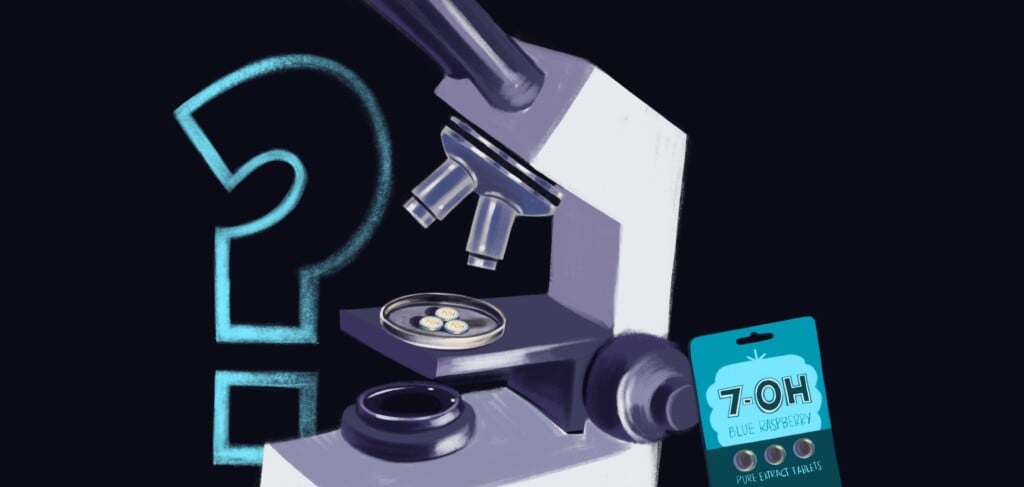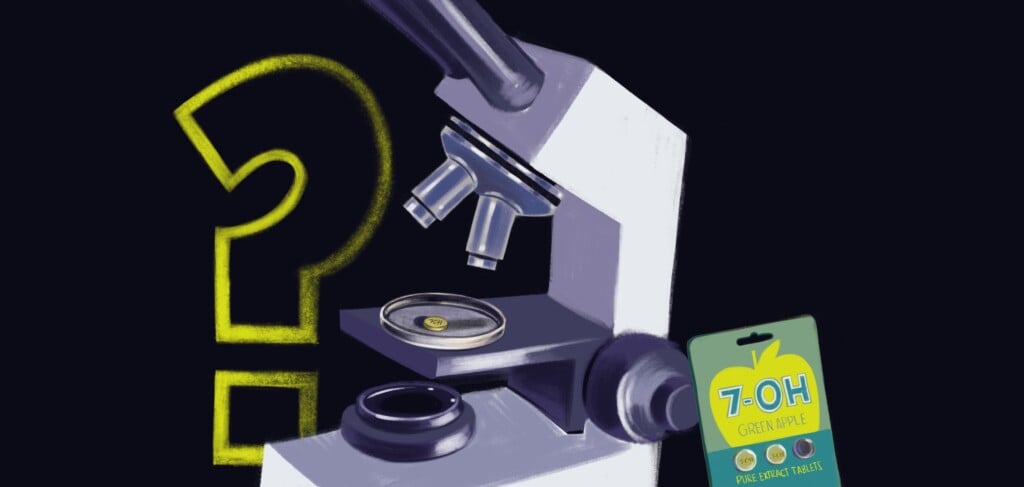The Miseducation of Marcus Leach
=
Marcus Leach paced the dingy college cafeteria, eager to hear the election results. It was the spring of 2005, and he had run for president of the Student Government Association at the University of Missouri-Kansas City. Although student government is usually just résumé fodder, the turnout of 1,696 votes was greater than any in recent memory at the university, and nearly 1,000 more than the previous year. The biggest reason was probably Leach himself — an energetic new student politician who had made friends fast and enemies even faster.
It wasn’t that he was nervous. Leach, son of a black mother and a white father, had assembled a veritable United Nations ticket: Sofya Galich, who’s Russian, for executive vice president; Sharan Srinivas, who’s from India, for administrative vice president; and Nu-Quynh Tran, who’s Vietnamese, for comptroller. He knew he had the vote of most of the minority students on campus, many of the campus’s Democrats and, most certainly, his friends from the debate team.
According to his opponents, Leach’s political party had played dirty. The entire university e-mail system had been blasted with spam urging students to vote for the Roo Party, named for the university’s Kangaroo mascot. Sending out the mass e-mail broke the school’s election rules. Worse, fliers spread around campus before the election depicted a white master whipping a black slave. Under the illustration was a message directed at Leach’s GOP-heavy opposition: “College Republicans Support Slavery!”
It was 10:30 p.m., and a handful of students hung out, munching on vending-machine snacks. As Leach waited for the results, the outgoing SGA executive vice president, Tom Kernan, approached with his fiancée, Sarah Peters, who served in the student senate and whose Experience to Lead, Commitment to Serve party had lost to Leach’s Roo Party. Kernan offered Leach a glimpse of the fight to come. According to Leach, Kernan told him: “It’ll be easier to impeach you than win an election.”
Kernan denies making that threat. But he does say he never liked Leach. Before Leach came along, nobody blatantly spammed the university or put up racially polarizing posters. Kernan and his friends played by the rules. And they lost. It wasn’t fair.
“Student government has so many issues to be working on,” Kernan tells the Pitch. “I’d prefer to see student politicians talking about the ins and outs of higher-education funding in the state of Missouri or the astronomical pay increases within the university staff as opposed to ‘They support slavery.’ That seemed ridiculous.”
Kernan was about to graduate, but he assumed that his legacy was safe with the senators who remained at the school. One of his closest allies was Leach’s soon-to-be nemesis, Kevin Lujin, who serves on the student senate. To sum up his opinion of Leach, Lujin likes to say, “Marcus. Good at debate. Bad at governance.”
This past school year, Lujin helped orchestrate Leach’s impeachment and removal from office. As the Pitch followed the yearlong breakdown of UMKC’s political system, the players and their tactics reminded us of national politics, with deceitful personal attacks and judges being asked to decide elections.
Lesson No. 1: Control the Money
Kevin Lujin has been working on a master’s degree in marketing for more years than he’ll admit. He’s famous around campus for being a scary-smart, tenacious gadfly. He’s in his early thirties, tall, with blond hair and an unnerving honk of a laugh. He attends countless meetings, sometimes for clubs to which he doesn’t belong, dressed in his everyday uniform of tennis shoes, jeans, a blue button-down shirt and a digital recorder on a cord hanging from his neck. Lujin was an enterprising reporter for the student newspaper, University News, until he was kicked off after a dispute with the staff and adviser.
[page]
In 2003, he started publishing his own online student paper, the Aurora. Lujin uncovered a UMKC-sized Watergate to report in the Aurora. He found that the university’s Student Life Office had taken $10,254.60 during the 2004-05 school year from the Student Activity Fee, which is tacked on to tuition to pay for nonacademic services. The money paid for 12 percent raises for the Student Life staff — in a year when faculty received 2 percent increases. The university admitted the error and returned the money. No one was disciplined.
The Student Activity Fee had already been under scrutiny. The previous year, Kernan had tried to get control over the fund. The college collects nearly $1 million a year for the Student Activity Fund but gives less than $100,000 of it to the student government. Kernan wanted all of it. He helped draw up bylaws framing how SGA would allocate the money. The SGA is split into an executive branch elected by students and a senate made up of students, some chosen by student ballot and some appointed by the university’s colleges. Under the new bylaws, the senate would allocate all of the Student Activity Fee fund. Kernan got the senate to unanimously approve the idea.
Then Leach came along and ruined the plan.
Before Leach enrolled at UMKC, the Pitch put him on the cover two weeks in a row in the spring of 2003 as a subject of two lengthy articles (“War of Words” and “Word War II,” May 1 and May 8, 2004). Leach’s Central High School debate team was fighting with education bureaucrats for the right to compete in tournaments, which they often won. Leach, who grew up near 33rd Street and Elmwood, threw himself into campus politics when he enrolled in the fall of 2003. “I did just about everything I could, knowing it would help me with my SGA race,” he says.
Leach refused to support the senate’s proposal to take control of the fund, making himself an enemy of senators who had worked hard to craft the bylaws the previous year. But he claims that the senate’s plan was flawed. In his view, the plan would have made it difficult for extracurricular and social student groups to ask for money for events and functions. In particular, Leach was looking out for the African-American Student Union, which had helped Leach get elected.
The Student Activity Fee fund issue got Leach off on the wrong foot with most of the senate. It wasn’t uncommon for meetings to get out of hand. After several senators walked out of a September 21, 2005, meeting, the minutes read, “Confusion ensued in the Senate and discord broke out regarding the meaning of ‘quorum’ and what the Senate could or could not do whilst lacking quorum.”
The mess was reminiscent of another president who calls himself “the decider” and a Congress too divided to do anything on its own. And as the gap between Leach and the senate widened, both sides seemed interested only in making things worse.
Lesson No. 2: Inflate Your Own Ego
On a chilly night last October, Black Panther revolutionary Bobby Seale stood on the steps of UMKC’s Scofield Hall and enchanted an audience of 300. He told stories of bombings, FBI arrests and wiretaps. He wore a black beret and recited a poem that got him arrested when he read it in 1966 at an anti-draft rally in California. “But Uncle Sammy, if you want to stay a freakshow strongman god,” Seale read, “Fuck your motherfucking self. I will not serve.”
[page]
The students and faculty hung around waiting for Seale to sign their copies of his new barbecue cookbook. Then they bopped to the beat of local hip-hop acts, and some remained until after 11 p.m. For the “commuter campus,” as UMKC hates to be called, this was the most on-campus, after-hours action anyone had seen in years.
The speech was part of the four-day Tent State University event, in which tents symbolized the plight of people paying ever-increasing tuition for what organizers complained was an incomplete education. Leach had fronted about $2,000 from SGA operations to help fund Seale’s visit. He allocated the money without consulting the senate, and his foes were furious. They passed a bylaw telling Leach and his VP, Galich, that they were forbidden from spending more than $50 without senate approval. The new bylaw made the senate’s wishes clear but didn’t matter much to Leach, who defended his right to make executive decisions as a democratically elected leader.
Soon after, the senate discovered that Leach had spent another $970 without telling them. This time, the money went to bus a group of 30 cheering, body-painted students called the Roo Crew to Columbia. The November 29 trip was for the first-ever matchup of the UMKC and University of Missouri-Columbia basketball teams. The UMKC Kangaroos fell 60-42; Leach says the trip was the start of a rivalry between the universities.
Spending the money without senate approval, according to Sen. Jason Finley, was an “act of hubris.” Leach claims the Roo Crew allocation occurred before the senate passed its spending-limitations bylaw.
In November, the senate voted to ask the university to freeze Leach’s and Galich’s salaries (about $5,000 a year) until they attended more meetings and agreed not to spend money without senate approval. Leach had skipped several meetings with MU-system leaders and with the student lobbying group that travels to Jefferson City. In his defense, Leach said he was busy studying for tests. The university never froze the salaries.
Some of the senators say they pleaded with Leach during meetings not to take their criticisms personally. “He would call us out a lot and say, ‘I’m elected,'” says Sen. Caleb Egli. “But we really do represent the students, too. And he’d argue with us on points we didn’t want to argue.”
In response, Leach again spent money without letting the senate know. This time, it was for $46,000 to lure former U.S. Sen. Bob Dole to speak April 12 at UMKC’s annual Robert F. Kennedy Symposium. The previous year’s speaker, Sen. Tom Daschle, had been paid $25,500.
If Leach is preparing for a life on a bigger political stage, he apparently has learned to keep doing whatever the other branch of government doesn’t like.
Lesson No. 3: When All Else Fails, Dig Up Dirt
When the senate began talking impeachment, Leach’s fanbase responded by attending a senate meeting in force. A group of mostly black students showed up holding signs with messages such as “We Want the President We Voted For.” They stood uncomfortably close to the rectangle of tables the senators occupied. As the discussion grew more heated, Finley said he felt “physically threatened.” But the meeting concluded with no impeachment decision.
On February 1, the senate voted to impeach Leach and Galich. Senators Lujin and Greg Giese cited as reasons missed meetings and the expenditures that hadn’t been signed off by the senate. In addition, Lujin claimed to have found, near the end of his freshman year, tasteless jokes written by Leach on Cross-x.com, an online debate forum. One joke that appears to have been written by Leach reads: “How do you make a 7-year-old cry twice? Wipe your bloody dick on her teddy bear.”
[page]
Sen. Allyson Bradley claimed to have downloaded pictures and comments from a Web site that showed Leach participating in underage drinking at UMKC. Leach invited Bradley to pass around the photos, but she declined, saying they would compromise the privacy of other students in the picture. (The photos Bradley referenced actually turned out to be one picture showing Leach holding a plastic cup, with no indication what was inside.)
Leach’s refusal to apologize infuriated the senators. “Sofya apologized [for missing meetings],” Egli says. “Marcus was like, ‘You can’t make me go [to them].'”
The impeachment was the first step in a process to remove Leach from office. The trial to remove him began at 7:30 p.m. on February 15 in Room 106 of the University Center. Leach’s supporters filled the room until it was standing-room-only. Eric Shimamoto, who served on the student Superior Court, acted as the hearing’s judge.
One of Leach’s friends, Austin Case, handed out earplugs, explaining that some people had brought air horns and whistles. “I’ll filibuster all night if I have to,” Case promised the gallery.
The hearing dragged as the senate argued over the proper rules governing meetings and whether it had enough members to cast a vote. Giese, who was particularly vocal in his wish to oust Leach, noted that the senate had already impeached Galich and Leach, so the only thing left to decide should be whether to actually remove them.
“You get a gold star for amateur lawyering,” said Shimamoto, the judge, who was a student at the law school.
At 10 p.m., someone in the gallery made a Taco Bell run. Restless students took pictures of each other holding the new hexagonal Crunchwrap Supreme. At 10:30, Sen. Justin Smith started a debate about the proper use of “is” or “at” in a sentence. When the trial finally began at around 11 p.m., a senator motioned that Leach’s and Galich’s time for their defense should be limited to 15 minutes each.
The trial ended around 1 a.m., with 20 senators in favor of removing Leach and seven opposed. His vice president, Galich, was allowed to keep her job. Galich, who is white, claims that she was impeached but then allowed to stay in office so that the removal of the black president by a mostly white senate wouldn’t look racist.
Sen. Adrienne May, who voted to remove Leach, says, “The trial itself didn’t go as smoothly as it should have.” She adds that the senate’s image would have benefited if students had been better informed about the SGA’s history with Leach. “We seemed like these vindictive, mean people who hated Marcus and were out to impeach him. You didn’t hear about all the warnings we gave him, or about us telling him what was a valid excuse [for missing meetings].”
Leach immediately clamored to get back on top. His supporters gathered a thousand signatures on a petition demanding a campuswide referendum. Leach brought the petition to Vice Chancellor Pat Long. Long agreed to reinstate him until the university could hold a referendum.
Leach lost the online vote 277 to 254. (He maintains that a computer glitch kept many students from casting votes.) Leach says he was depressed after the impeachment. “I felt like I completely lost the credibility of people who trusted me, and it wasn’t for anything I had done. It was because of the way things were presented to them.”
[page]
Just like another impeached president, Leach picked himself up and prepared for a fight with those who wanted to bring him down.
Lesson No. 4: Orchestrate a Public-Relations Turnaround
On March 13, newly hired Chancellor Guy Bailey sent an e-mail to all UMKC students: “While the Student Government Association is an important recommending body, several recent incidents have led me to conclude that the current SGA is dysfunctional and is not representing students on key issues.” The chancellor had picked 25 students to serve on a new Student Advisory Council. The message was clear: The SGA had lost its influence with the administration.
The following senate meeting was full of questions, mostly about whether the senators still had any power. Bradley said: “There’s not an administrator in this room. We’ve been abandoned!”
Adam Jung, a sophomore who had been active in Tent State, stood up in the gallery and called the convening body a “pretend senate.” To illustrate his point, he walked around the room, laying a hand above each senator’s head. “Duck, duck, duck,” he said. He finished with Lujin: “Goose!”
Over spring break, Leach and his friend Case — the one who had offered to filibuster at Leach’s impeachment — reinvented the Roo Party. This time, Case would run for president, and his girlfriend, Elizabeth Flanigan, would run for administrative vice president. They drafted Kwame Turner, a well-liked student, to run for comptroller. Leach would be executive vice president. “For the things I’ve done, a lot of people consider me the best SGA President ever,” Leach says. He cited his crowning achievement: extending the fall break to nine days. “It’s maybe my fault for not bragging. Maybe it would have saved me some of the humiliation [of impeachment].”
Meanwhile, four fraternity members formed what they called the Reform Party to oppose the Leach ticket: David Watkins, Brett Peterson and Larry Vaughn. Also on the ticket: Jason Finley, the senator who had felt threatened by Leach’s crowd of support and who ended up voting to impeach him.
Finley says he still considers Leach a friend.
Leach says of Finley: “I brought that kid into the spotlight, and he backstabbed me.”
Lesson No. 5: Play the Race Card
Leach’s regrouped Roo Party and the frat-heavy Reform Party met for a debate April 10 in the same room where Leach had been impeached. The chairs, many of which would remain empty, were rearranged so that they faced two wooden podiums. Most of the students in attendance wore bright-pink and baby-blue T-shirts printed by the Reform Party. A guy in a white cap, his sunburned skin the same color as his shirt, spat sunflower seeds into an empty water bottle.
Only four of Leach’s friends were present. Leach’s girlfriend, Amy Tran, a 20-year-old pharmacy student, tapped her foot nervously in the front row. Leach wore tennis shoes, basketball shorts and a gray T-shirt that looked slightly damp. His opponents dressed in crisp suits and ties.
The Reform Party was all male, so the Roo Party asked them questions about the Women’s Center. Vaughn, the lone African-American on the Reform Party ticket, had said at a previous debate that he was against affirmative action, so Flanigan asked him questions about campus racism. In April, an audit found that black and Hispanic students often feel isolated on campus and discriminated against by the mostly white faculty. But Vaughn said he hadn’t experienced racism at UMKC. “First of all, I’m not aware of my party putting me on the ticket because I’m black,” Vaughn said.
[page]
Turner, running for comptroller on the Roo Party ticket, was known as a class clown. At the debate, it became apparent that Turner wasn’t quite sure what a comptroller was supposed to do. “As far as financial experience, I can do math,” Turner quipped. “One, two, three, four. I can add two plus two, subtract and divide. Thank you very much.”
Turner’s opponents asked him technical financial questions such as “Which method of student-fund distribution do you prefer: the SAFC or the VCAC model?” Leach tried to jump in and answer. “Well, you can go ahead and embarrass him, but …” Leach said, trailing off, eliciting snickers from the audience.
A member of the audience passed forward a written question wondering why the Reform Party candidates all wore suits. Peterson, the administrative vice presidential candidate, stood to answer. “In our society,” he began pedantically, “suits are appropriate as a signal of serious work. They show that we mean business, to use a cliché. It is not reflective of normal student attire. But it is reflective of the type of commitment we will bring to office.”
Another question from the audience asked the Reform Party members how they could lead a university when its party’s members belonged to fraternities, groups sometimes connected to binge drinking. Leach, who had been daydreaming, suddenly snapped to attention. “Who was the question directed to?” he asked. The moderator said it wasn’t for him. “Oh, I heard ‘underage drinking’ and thought it was me,” he said with a grin, referring to Bradley’s photo of him with a plastic cup. The audience cracked up.
Case opted not to use the lectern in his closing remarks. “I’m just going to sit. Not because I peed my pants,” Case joked. “Last year, an unelected, white-male-dominated student government voted to impeach Marcus Leach. This vote is indicative of everything our ticket hates about student government.”
When the debate ended, Case told Flanigan, “I thought we won.” Leach accepted a hug from his girlfriend.
But in the parking lot outside, Leach admitted that the Roo Party had been stomped debatewise. “The sad thing is, I would like to think that a lot of the people in that room would have voted for me,” Leach said. “But I didn’t get the turnout.”
His lesson here? Politics always comes down to a popularity contest.
Lesson No. 6: When You Lose, Sue
When the election results were announced, Leach’s Roo Party won.
By one vote.
The Reform Party contested the results immediately, filing a complaint April 20 with the student Superior Court. The appeal claimed that the Roo Party had broken campus election rules by sending universitywide spam e-mails promoting Leach’s ticket.
But the Superior Court, which was losing judges to graduation, didn’t have enough members to hear the appeal. The senate held an emergency meeting to appoint new justices, but their newly appointed chief justice resigned soon after, delaying the court’s decision until next fall. Leach hopes it’ll take until Christmas.
Has UMKC’s student government learned its lessons from a year of shadowing the worst of national politics? Will next year go more smoothly? Leach answers without hesitation: “Absolutely not.”




